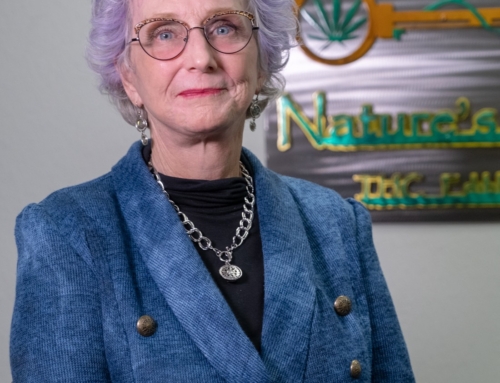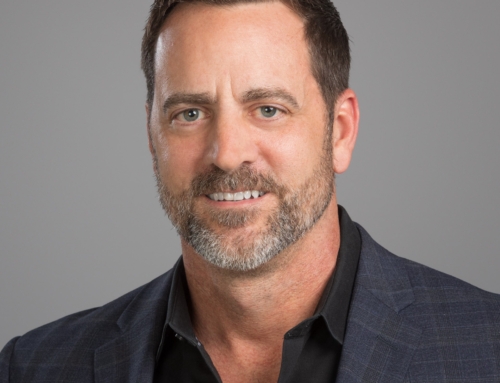“Focus on the end-result. Too many times, professionals (myself included) in all industries get caught up in the day-to-day and lose sight of a goal, be it revenue, capital formation, or organizational. By informing employees of what these goals are ahead of time, the company can collaborate as a team to hit objectives.”
I had the pleasure of interviewing Gregory Sichenzia, a founding member of Sichenzia Ross Ference LLP. Gregory counsels public and private companies in all securities laws matters, from complex financing transactions and listings on various stock exchanges through everyday regulatory requirements. He has also been responsible for structuring innovative merger and acquisition transactions. Throughout his career he has represented many companies and investment banks in initial public offerings of securities, and has represented numerous public companies in private equity financing transactions and the resulting resale registration statements associated with these financings. Mr. Sichenzia is a nationally recognized corporate finance and securities practitioner and has worked closely with the Securities and Exchange Commission staff in establishing guidelines for various corporate finance transactions. Additionally, Mr. Sichenzia actively represents FINRA member Broker-Dealers in various matters with regulatory agencies. Mr. Sichenzia started his career at a large national law firm representing Fortune 500 companies and shifted his focus to smaller public companies in the early 1990’s. Immediately prior to forming the firm, Mr. Sichenzia was the managing partner of the Corporate and Securities Department at Singer, Frumento Sichenzia LLP.
Thank you so much for doing this with us! Can you share with us the story about what brought you to this specific career path?
As a firm, Sichenzia Ross Ference (SRF) has always been a leader in emerging industries — we were the first to enter the market in China in 2010–11, as well as one of the first to really become in entrenched in biotech in 2012/2013.
Always on the lookout for the next emerging industry/market, my team and I saw a tremendous opportunity to become experts in the burgeoning cannabis market in early 2016. We did so by combining our expertise in securities law with our knowledge of how to work with clients and companies across emerging and innovative markets. This led us to becoming the first to receive a registration statement (on behalf of a client) from the SEC for a company in the cannabis space.
Can you share the most interesting story that happened to you since you began leading your company?
Today, representing public companies in private equity capital raises, commonly referred to as PIPEs transactions, is a major part of our firm’s work and the securities law industry as a whole. It’s also a practice Sichenzia Ross developed without even realizing we were leading a category. Somewhere in 2003 or 2004, a journalist called me looking for an expert source on PIPEs transactions, a term that I wasn’t even familiar with, despite the fact that my colleagues and I had been working on these sorts of transactions on a daily basis. What’s more, the reporter was the one who informed me, through the interview request, that Sichenzia Ross Ference was a leader in this category!

Can you share a story about the funniest mistake you made when you were first starting? Can you tell us what lesson you learned from that?
There is a long-standing ritual during corporate capital raises to produce a commemorative “tombstone” — a simple memento detailing participants and figures — to mark the closing of a transaction.
As a startup firm over 20 years ago, it was my responsibility to design these memorabilia and coordinate the ordering process. Unfortunately, for one of our first ones, I made an error in the deal amount that was to be printed, which resulted in a million becoming a billion on the tombstone text. Of course, the error was not caught until long after it was too late and a large number of these Lucite statues were made and distributed to everyone involved, prominently displaying the incorrect deal figure. The proof of my mistake still sits on my desk to this day and serves as a reminder that, no matter how big or small a task might seem, you always have to pay close attention to detail and be mindful of everything you do.
Are you working on any exciting projects now?
Yes, we’re currently involved with several! This is an incredibly exciting time to be working in the cannabis industry, as many new companies and technologies are being introduced and regulatory changes are taking place. Needless to say, there are a lot of twists and turns in our day-to-day work which keep things exciting.
For instance, CBD is really driving the industry right now. With less-stringent regulations around CBD-infused products and synthetics, this segment of the cannabis industry holds a lot of power and promise. Naturally, to establish ourselves as legal experts and leaders in this practice area, my colleagues and I need to understand the nuances of CBD as a product, the market surrounding it and related laws and regulations. The cannabis industry represents one of the largest growth areas of our firm right now, so much so that we’ve established an entire practice group dedicated to cannabis law.

None of us are able to achieve success without some help along the way. Is there a particular person who you are grateful towards who helped get you to where you are? Can you share a story?
Like any successful business leader, I can think of several individuals who have believed in me when others didn’t, went out of their way to answer my questions or provide me guidance during challenging times and, on the whole, helped me through various stages of my career. Many of my mentors in the legal field are still the first people I go to when I’m seeking counsel today.
This industry is young dynamic and creative. Do you use any clever and innovative marketing strategies that you think large legacy companies should consider adopting?
I don’t know how clever they are, but right now we are just focused on education and providing resources to guide our clients. We’ve already published numerous papers on cannabis and marijuana law, members of our team frequently speak on event panels about investing in the cannabis sector and we strive to make our clients aware of current events and legislative matters. These are just a few examples of action we’ve taken to position ourselves more as a resource and partner, and less as a service provider.

Can you share 3 things that most excite you about the Cannabis industry? Can you share 3 things that most concern you?
Some exciting things include:
· The rapid growth of the industry definitely excites me the most, there are millions of people running into this space trying to make their mark. Of course, this can be viewed as an area of concern, as well. Every new high-growth industry draws innovators and investors, some of whom might not stick around for long, creating a “Wild West” atmosphere.
· Another exciting aspect is the growth of ancillary industries in tandem with cannabis. Companies that provide technologies and services related to cannabis production, marketing and even use are well-poised for growth and investment if they play their cards right by staying keyed in to industry trends and consumer desires. I like to draw a parallel to Levi Strauss during the Gold Rush. It offered a simple product (reliable denim apparel) which quickly became desirable and valuable to a key demographic (miners) within a high-growth industry (gold mining). However, as the Gold Rush came to an end, Levi Strauss rode its wave of success by finding ways to remain profitable and successful: creatively adapting its brand and positioning its products as staples for mainstream consumers of all ages and lifestyles, a strategy that changed the apparel industry as a whole.
· On another note, I’m very excited by the diversity in management within this industry. In addition to the usual entrepreneurs and start-up minded folks, we’re seeing many big players from more-traditional industries move into the cannabis space after seeing the high-growth potential. Irwin Simon is a great example. He stepped down as chief executive of the organic and natural foods company, Hain Celestial, which he founded, and took a role as Chairman of Aphria Inc., a Canadian-based cannabis company.
In terms of concerns:
· Unbridled growth, while exciting, also poses some concerns. I’ll offer another analogy: the liquor industry just before prohibition. It’s easy for a new market to get a little out of hand, particularly when regulations and certainly politicians haven’t caught up with the industry’s rampant growth. Less-educated investors can easily fall prey to shady dealings when things are moving at such a rapid pace.
· Coming back to leadership and management, bringing new and seasoned experts into the mix is exciting and can prove fruitful for a company entering this space. However, as everyone rushes of get a piece of the pie and share their “big idea,” we also need to be wary of over-saturation. There are a number of B-rate players out there who are more talk than anything else. It’s important to vet companies if you’re looking to partner or make an investment.
· A last area of concern is the U.S. equities market. The market has been pointing straight up since 2009, but as most of us know, it won’t be this way forever. I am always concerned about young, burgeoning industries having their growth stunted by a broader stock market tumble.
Can you share the 5 questions you should ask in order to successfully invest in the cannabis industry”? Please share a story or example for each.
· Who is managing the company and what are their track records, both in the cannabis industry and others? As mentioned, there are a number of B-rate players and opportunists who jump into new and exciting industries. Perform a Google search on the individuals leading and raising capital for companies. Ask questions about their vision for growth and compensation.
· Is the company involved in medicinal or recreational cannabis? This is such an incredible distinction to make for both institutional and retail investors. The recreational category is still challenged in the majority of states, while the clear consensus among Americans and even most state legislators is that medicinal marijuana is a benefit to its user, the patient. Eventually, recreational will get there but for now, understanding the risks and growth potential associated with each category is paramount.
· What is the current status/legality of cannabis in the jurisdiction where you plan to invest? Similar to my point above, a cannabis company based in Mobile, Alabama is going to experience significantly greater challenges than one based in California. This goes far beyond just legality (which is of course significant in itself), but also about public sentiment and the shape of state politics. Zooming out, an investor must understand the nuances in securities law for cannabis companies in the U.S. vs. Canada.
· What is the nature of the company’s work and how is their technology/service applied? To put it more directly, does it touch the cannabis leaf? One of our favorite phrases, if the marijuana plant itself is involved, the law views the Company in a completely different manner. For a company looking to raise capital or list on a public exchange, accepting this distinction and having your legal team work using this perspective will reduce the propensity for headaches in the future.
· How unique is the product or service and how does the company differentiate itself from competition in a crowded market? I mentioned earlier that CBD is such a hot sector of the cannabis industry right now…but it’s also very crowded. In evaluating a company, an investor should proceed as they would with a company in the biotech or social media space — determine the company’s differentiators and upside. What makes the product better? What makes the management better?

What advice would you give to other CEOs or founders to help their employees to thrive?
Focus on the end-result. Too many times, professionals (myself included) in all industries get caught up in the day-to-day and lose sight of a goal, be it revenue, capital formation, or organizational. By informing employees of what these goals are ahead of time, the company can collaborate as a team to hit objectives.
You are a person of great influence. If you could inspire a movement that would bring the most amount of good to the most amount of people, what would that be? You never know what your idea can trigger. 🙂
We need to take a step back and look for ways to change how doctors prescribe medicines as well as how we classify and criminalize certain substances. As we know all too well, opioids are completely legal but have led to tens of thousands of deaths (and countless more destruction) in the last few years alone. Meanwhile, cannabis and/or CBD has innumerable proven benefits for so many people including, but certainly not limited to, those with chronic pain, anxiety, depression, neurological disorders like Parkinson’s, and gastrointestinal disorders. We can dramatically improve quality of life for a large portion of the population by rethinking how we perceive, prescribe and use controlled substances.
What is the best way our readers can follow you on social media?
Connect with me via my personal LinkedIn: https://www.linkedin.com/in/gregory-sichenzia-3675114
You can also follow Sichenzia Ross Ference LLP, on social media:
Twitter
Facebook
LinkedIn









![“The potential to help people [in this industry] is enormous, but there’s still so much to learn.” – Ramon Alarcon, Witi](https://lakesideremedy.com/wp-content/uploads/2020/12/1thj5ekUyxQ69iLz1JJyODg-scaled-e1607882756286-500x383.jpeg)
